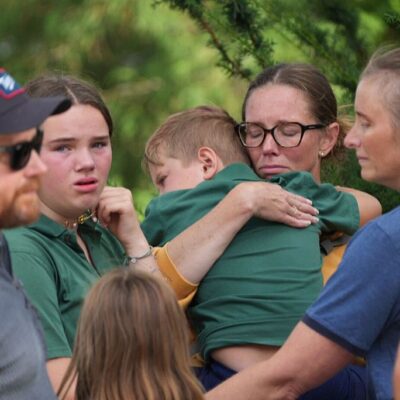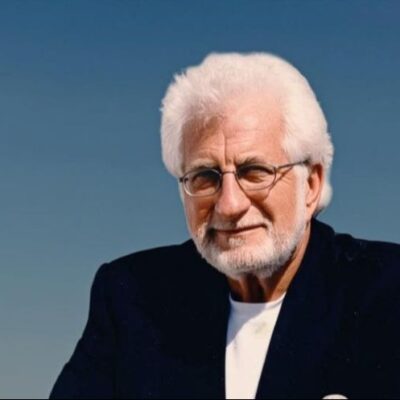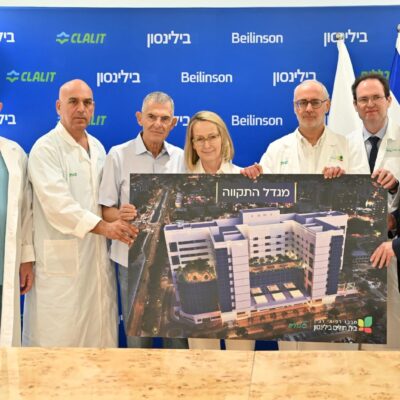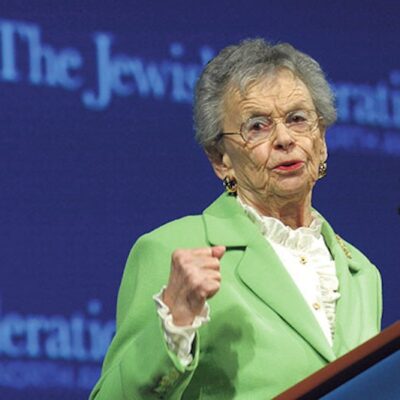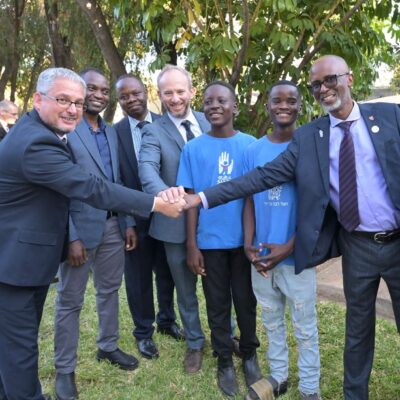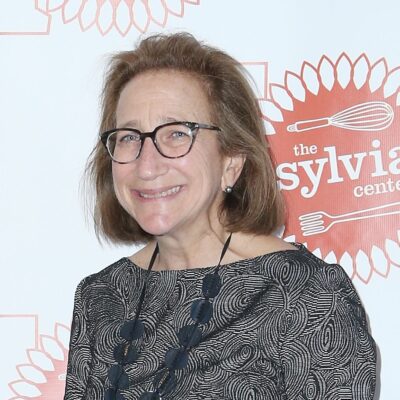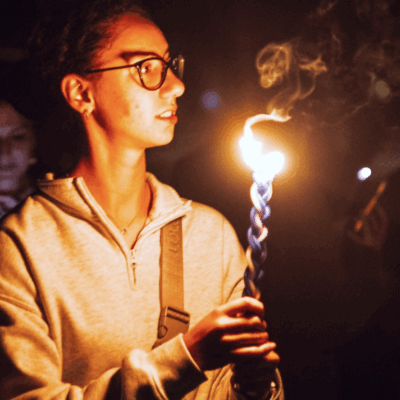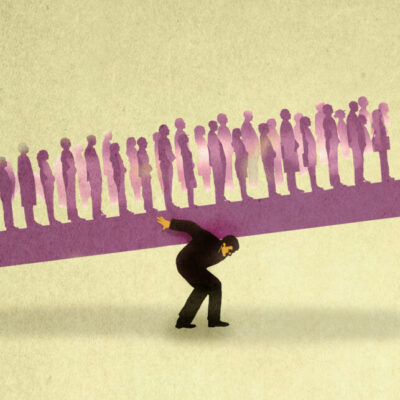Opinion
INTERFAITH RELATIONS
Pope Francis’ legacy
In Short
Pope Francis had an unprecedented interfaith impact across the globe, specifically between the three Abrahamic religions.
In the days since Pope Francis’ passing, he has been rightly hailed as both a reformer and a man of humility and compassion, someone who role-modeled for leaders of all religious traditions a spirit of love for and solidarity with the poor and powerless.
Yet another important aspect of Francis’ legacy has received little attention.

Pope Francis waves to well-wishers on Sept. 13, 2024 in Singapore. The 87-year-old pontiff aimed to promote interfaith dialogue and address issues like climate change during his longest trip yet as leader of the Catholic Church. Ezra Acayan/Getty Images
More than any other major faith leader of our time, Pope Francis advocated in several public declarations that there are many paths leading to God, and that his own Catholic Church is not the only path for religious believers.
He put it succinctly in one of his last addresses on interfaith relations in Singapore in September 2024. “All religions are paths to God,” he said. “There is only one God, and religions are like languages, paths to reach God.”
I heard Pope Francis express this groundbreaking belief at three historic interreligious gatherings in Muslim countries. The first was in Abu Dhabi in 2019, which celebrated the first-ever papal visit to the Arabian Gulf. The second was in November 2022 at the Bahrain Dialogue Forum in Manama. And earlier that year, I was with him during his address at the 7th Congress of Leaders of World and Traditional Religions in Astana, Kazakhstan.
At all three interreligious conferences in Muslim countries, which I attended representing the Jewish community, I had the honor of addressing these assemblies as well. On each occasion, I was inspired by Pope Francis’ full-throated avowal that no faith has the monopoly on the truth. He never spoke down to his interfaith partners, but rather treated each one of us and our faith traditions as equal to his own.
I vividly recall Pope Francis’ words at the conference in Kazakhstan, affirming that all “humanity forms but one community” and that “the path of interreligious dialogue is a shared path to peace. … As such, it is necessary and irrevocable.” That was the spirit and passion that impelled Pope Francis’ interreligious activism and made his outreach to non-Christians so successful.
In an interview I gave to the Vatican News at the Kazakhstan conference, I said the message Pope Francis conveyed was “Enough with the proselytization. Each of us is who we are.” I also pointed out that the Pope urged us to not only tolerate other faiths but to actively engage with them. Pope Francis conjured a compelling vision of a world, one in which authoritative religious leaders, whether Christian, Muslim or Jewish, affirm to each other: “My way is not the only way, there are many other ways.”
“If religious leaders could choose to move the needle just a bit, where instead of saying that religion is black and white, or ‘I am the absolute truth, you are not,’ it could really lead to a diminution in war and conflicts around the world,” I said.
Pope Francis created a theological and moral framework for interfaith engagement, which he termed a “culture of encounter.” Through his gestures, writings and relationships, he has helped shift the focus from mere tolerance to active fraternity. This approach is not only a roadmap for Christianity’s relationship with other faiths but also provides a model that Muslims and Jews can emulate in building bridges with each other.
As Pope Francis wrote in his 2020 encyclical Fratelli tutti (Brothers All), “We, as a people, should be passionate about meeting others, seeking points of contact, building bridges, planning a project that includes everyone.”
At a time of growing division between nations, rising religious fundamentalism and escalating warfare, Pope Francis’ enthusiastic advocacy for multiple religious paths to truth and his ethic of engagement between religions and nations, will together serve as his most precious, consequential and enduring legacy.
I believe Pope Francis’ revolutionary vision of inclusiveness and the truth of all faiths will give hope and inspiration into the future to human beings of all faiths and nationalities in our continuing struggle to create a harmonious and peaceful world.
Rabbi Marc Schneier is the president of the Foundation for Ethnic Understanding and the president of The Hampton Synagogue in Westhampton Beach, N.Y.

